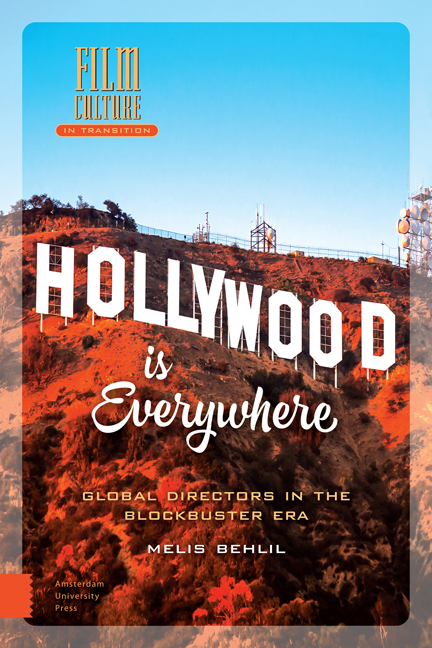Book contents
- Frontmatter
- Dedication
- Contents
- Acknowledgments
- Introduction: Hello Hollywood
- 1 Defining Hollywood
- 2 Cultural Work in a Globalizing World
- 3 Histories and Geographies of Global Directors
- 4 A View to a Franchise: James Bond
- 5 “Once More with the Volume Up”: Auto-remakes
- 6 I Want My MTV: Advertising and Music Videos
- 7 Conclusion: “Everywhere is Hollywood”
- Notes
- Bibliography
- List of Directors
- Index of Film Titles
- Index of Names
- Index of Subjects
- Film Culture in Transition
Introduction: Hello Hollywood
Published online by Cambridge University Press: 10 December 2020
- Frontmatter
- Dedication
- Contents
- Acknowledgments
- Introduction: Hello Hollywood
- 1 Defining Hollywood
- 2 Cultural Work in a Globalizing World
- 3 Histories and Geographies of Global Directors
- 4 A View to a Franchise: James Bond
- 5 “Once More with the Volume Up”: Auto-remakes
- 6 I Want My MTV: Advertising and Music Videos
- 7 Conclusion: “Everywhere is Hollywood”
- Notes
- Bibliography
- List of Directors
- Index of Film Titles
- Index of Names
- Index of Subjects
- Film Culture in Transition
Summary
My earliest memory of going to the movies is of SUPERMAN (Richard Donner, 1978). This must have been at the end of 1979, when the film appeared on screens in Istanbul eleven months after its US release. It was a different era; films were not released simultaneously across the world, we had no notion of pirate copies, and, of course, there was no Internet to download or stream any movies. For many of the urban filmgoers of my generation in Turkey, Superman is the first film they remember seeing in a movie theater. This was partly due to the limited choice available at the time. In November 1979, Superman was released in Turkey along with 24 other films. While this may seem like a large number to choose from, many of these films were popular sex comedies (a euphemism for soft-core porn), or “arabesk” melodramas, low-budget musicals that served as star vehicles for local singers, aimed mainly at recent internal migrants from rural areas into the cities. With the advent of network television and the decline of Turkish cinema in the late 1970s, audiences shrank, and the “family audiences” that remained seemed to prefer Hollywood films. The foreign fare released in November 1979 included one Italian-West German co-produced erotic thriller and several Hollywood productions from previous years. It was under these circumstances that I saw SUPERMAN in Istanbul, as a small child with my parents, in a now-defunct movie theater. I was amazed by the special effects, especially by how the hero really seemed to be flying. Superman may have traditionally stood for “truth, justice, and the American way,” and to many, it must have represented American imperialism through Hollywood dominance. To my five-year-old self, though, what made the film irresistible were the exciting adventures and the smile of Christopher Reeve; or what I would later identify as Hollywood's high production values and star appeal.
At that point, of course, I was unaware of the place that SUPERMAN would come to hold in film history. The first of many major big-budget superhero films to come over the following decades, SUPERMAN is considered one of the leading films of Hollywood's blockbuster era. Both the original film and the first of its sequels were the second-highest domestic box-office earners of their respective years (1978, 1981).
- Type
- Chapter
- Information
- Hollywood is EverywhereGlobal Directors in the Blockbuster Era, pp. 11 - 26Publisher: Amsterdam University PressPrint publication year: 2016



